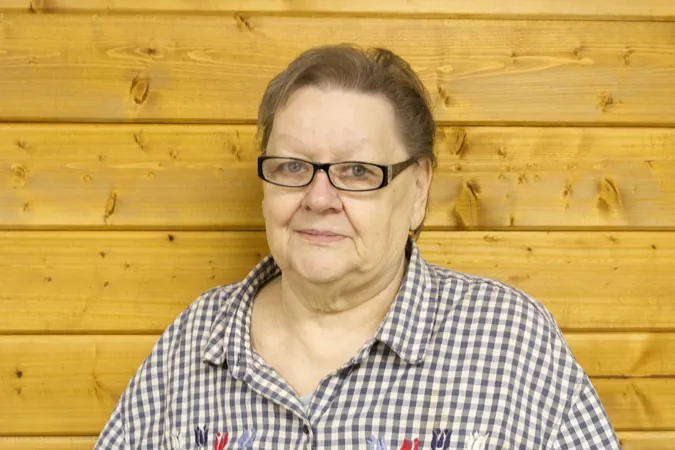
Breaking Barriers: Why Trans and Gender Diverse Individuals Struggle to Access Sexual Health Services in the UK
2025-09-16
Author: Jacques
Trans and Gender Diverse Individuals Face Serious Obstacles at UK Sexual Health Clinics
Recent research reveals that trans and gender diverse individuals often encounter significant barriers to access sexual health services in the UK, primarily due to expectations of poor treatment. Many actively seek signs of inclusivity before even stepping foot into clinics, highlighting the urgent need for improvements.
A Marginalized Community in Crisis
Trans individuals in the UK remain one of the most marginalized groups, enduring high levels of stigma, discrimination, and even violence. These challenges contribute not only to social issues like unemployment and homelessness but also to severe health problems, including heightened risks of anxiety, substance misuse, and suicidal thoughts. The number of people identifying as trans within primary care records surged fivefold from 2000 to 2018, yet specific barriers to sexual health services remain largely unaddressed.
The Hidden Epidemic: HIV and Sexual Health Disparities
Globally, trans people, particularly trans women, face elevated risks of HIV transmission. Although records suggest similar HIV prevalence rates between trans and cisgender populations in the UK, trans individuals are less likely to utilize sexual health resources and report negative experiences when they do, which threatens to exacerbate existing health disparities.
Recommendations to Improve Inclusivity in Sexual Health Services
The British Association for Sexual Health and HIV (BASHH) has issued recommendations for trans-inclusive practices, including gender-neutral registration forms and the necessity for clinic staff to undergo diversity training focused on trans issues. These measures aim to foster a more welcoming environment.
Research Study: Voices of the Community
To better understand the needs of trans and gender diverse people in accessing sexual health services, Dr. Tom Witney and a team from University College London conducted interviews with 33 individuals and focus groups with an additional 26 participants across the UK between 2022-2023.
Inside the Participants' Experiences: Expectations and Barriers
Participants shared common themes of feeling excluded and viewed as 'problems' rather than individuals with specific health needs. Many felt clinics were primarily designed for cisgender individuals, exacerbating feelings of anxiety and fear about being mistreated.
One participant expressed, "It’s scary by definition. The fear is that you are going to be treated badly." Others detailed experiences where they felt denied care or received inadequate attention.
Simple Changes Could Create a More Welcoming Environment
Participants proposed straightforward measures to enhance the inclusivity of sexual health services. Suggestions included displaying trans pride flags and ensuring that staff use gender-neutral greetings and share their pronouns, thereby establishing a level of comfort.
One participant remarked, "Just say hello, that’s it." Others emphasized that offering options like non-binary selections on registration forms could signal a commitment to inclusivity.
Training and Awareness: The Key to Better Care
How clinic staff interact with trans individuals has a major impact on comfort levels. Participants desire to receive quality care without invasive questions or awkward conversations. It is crucial for staff to remain open and approachable while avoiding assumptions about identities and experiences.
One focus group participant summarized, "You can just relax in the situation and you don’t feel they’re going to find you odd."
Conclusion: A Call for Action
The study concludes that trans and gender diverse individuals often feel that sexual health services are not tailored to meet their unique needs and highlight the importance of recognizing signs of inclusivity. It is evident that basic adjustments can drastically enhance the experiences of these individuals within healthcare settings and bridge the gap in sexual health disparities.
The time for action is now—simple changes can lead to significant improvements in accessibility and care for trans and gender diverse people in the UK.









 Brasil (PT)
Brasil (PT)
 Canada (EN)
Canada (EN)
 Chile (ES)
Chile (ES)
 Česko (CS)
Česko (CS)
 대한민국 (KO)
대한민국 (KO)
 España (ES)
España (ES)
 France (FR)
France (FR)
 Hong Kong (EN)
Hong Kong (EN)
 Italia (IT)
Italia (IT)
 日本 (JA)
日本 (JA)
 Magyarország (HU)
Magyarország (HU)
 Norge (NO)
Norge (NO)
 Polska (PL)
Polska (PL)
 Schweiz (DE)
Schweiz (DE)
 Singapore (EN)
Singapore (EN)
 Sverige (SV)
Sverige (SV)
 Suomi (FI)
Suomi (FI)
 Türkiye (TR)
Türkiye (TR)
 الإمارات العربية المتحدة (AR)
الإمارات العربية المتحدة (AR)